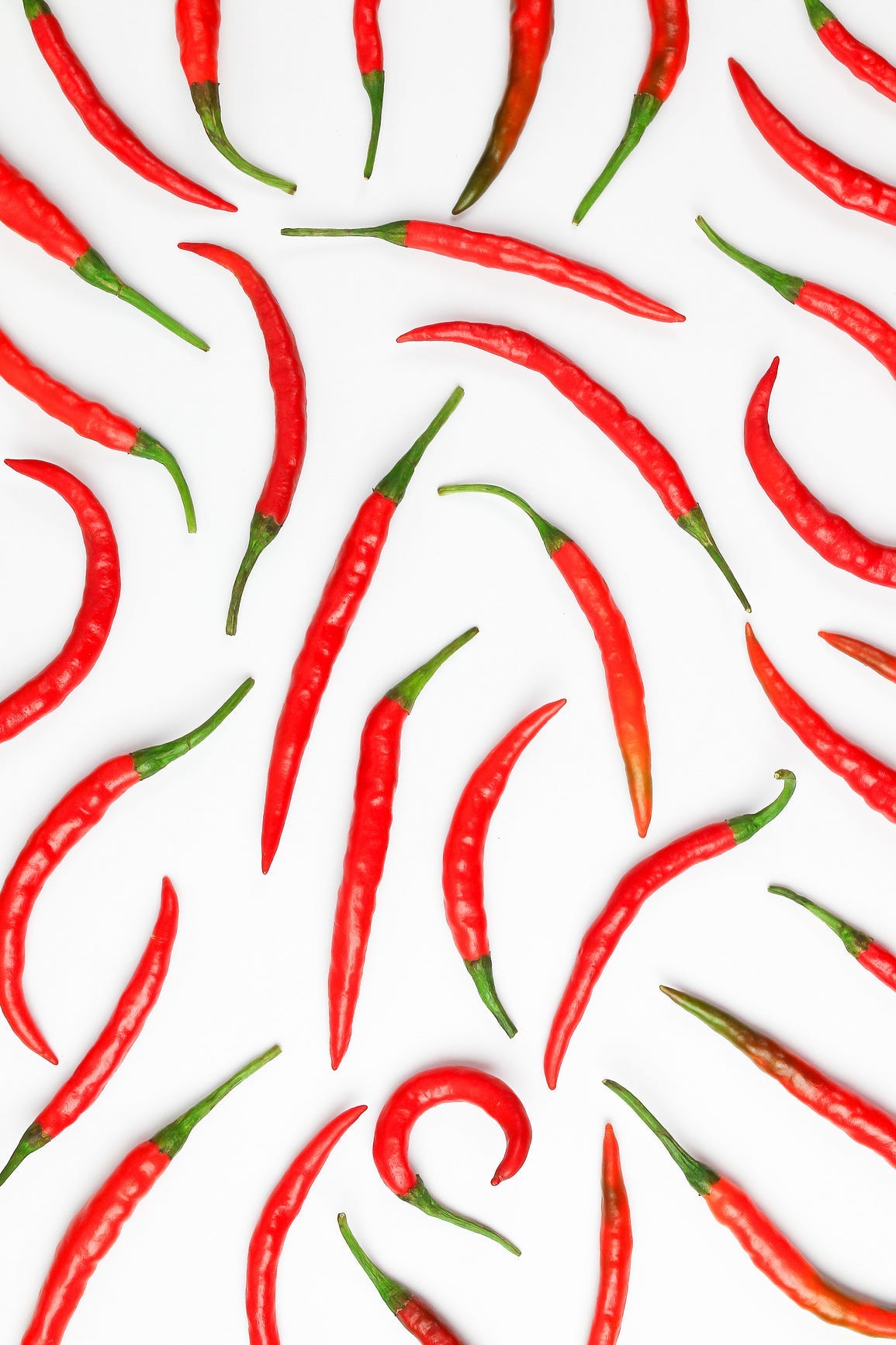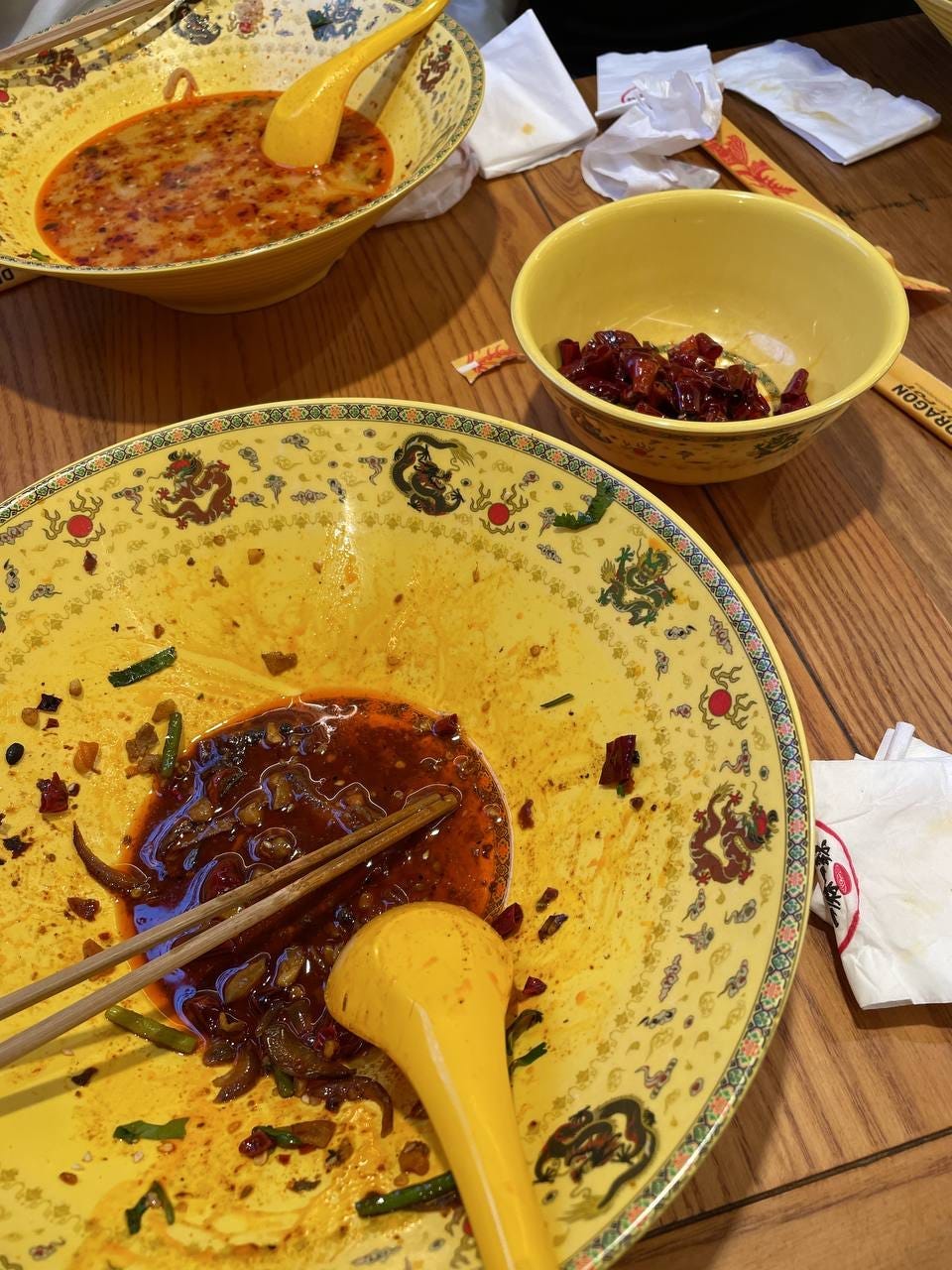Spicy Food Beware, I've Got A Possible Solution For That Issue.
Caveat: What I'd recommend doesn’t deal with the fire entering the body, but it sure can help with the fire exiting the body!
Some of us may have a poor tolerance for spicy food. I’ve heard of people who can’t tolerate ground pepper, for instance. There are those on the other spectrum who can devour Carolina Reapers like there’s no tomorrow — and suffer no ill-effects from it.
I love my spicy food. One of the things that I very much enjoy is a bowl of mala xiang guo because of the community vibes (3-5 people share food from one bowl, and it’s a fun thing for friends to partake in). An Indian curry won’t hurt either, there’s lots of communal fun in it.
In hot and humid tropical climates, the spiciness is not something I’d enjoy when outdoors. But in winter, it can be a very nice thing to have. On a whim, I figured, while I was vacationing in winter, I was going to order a 特辣 (highest level of spicy) variant of mala xiang guo.
And it did not disappoint. Look at how many chillies I picked out of the bowl:
To which, of course, my friends would be telling me, beware the toilet runs thereafter. I was predicting a rush to the toilet at 1 am.
But I tried a nifty counteracting trick, which reduced the intensity of the toilet rushes.
I think most of us have experienced diarrhea before, and the idea is to then take in charcoal tablets that can stop the leakages — but most of us have no idea how it works.
The charcoal tablets that we consume for diarrhea are essentially granular activated carbon. Many water filtration systems also do make use of granular activated carbon to treat water by removing pollutants and other microorganisms from the water.
So there is a link there — which is related to the porosity of the carbon material.
When we have a porous carbon particle, micropollutants and microorganisms are able to diffuse into the carbon particle and will end up becoming adsorbed or entrapped within the carbon particle.
In that way, water can be purified in the filtration system, and the microorganisms or the spoilt food that is wreaking havoc in our digestive system can be bound up and flushed out of the system before they cause further damage elsewhere.
It’s pretty effective indeed.
Unfortunately, I didn’t have any charcoal tablets on hand, but I had some psyllium husk on hand. Now, while psyllium husk isn’t completely identical to charcoal, what we do know about it is that:
Initially, it works by binding to partially digested food that is passing from the stomach into the small intestine.
It then helps with the absorption of water, which increases the size and moisture of stools. The end product is bigger and easier-to-pass stools.
Therefore, we can see that it will bind to foods — safe to say, it would bind to most things that are present in our digestive system. Including the spicy chemicals.
It then absorbs water to facilitate the excretion of stools. In that way, the spicy chemicals get bound up and get passed out more quickly, instead of bit-by-bit.
Our toilet runs wouldn’t be as nuclear as they would have been expected to be, and that was what got me musing this morning as I pondered over the reduced fireball intensity coming out of my digestive system - the rumbles came at 3am as milder versions of what I was previously used to.
Interesting idea, isn’t it?
Do feel free to check out the below article to see what other nutrients can help to support our digestive system!
What Nutrients Support Digestion And Detox In Our Body?
The digestion of any food or other substances that we ingest, as well the subsequent elimination of these products from our digestive system undergoes a relatively complex mechanism. Different things undergo different detoxification reactions. Some undergo solubilisation in water and are urinated out via this chemical reaction known as glucuronidation.






